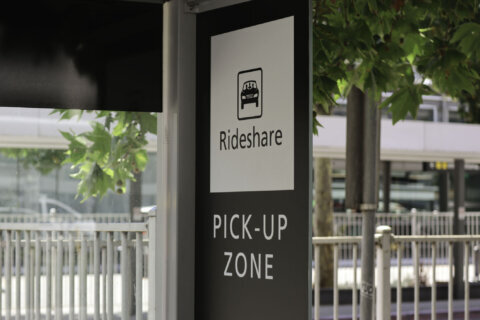Whether it is sickness, bad weather or terrible service, many things have the potential to ruin the vacation you’ve worked so hard to plan. However, identity theft may trump all of those unfortunate situations. Having to close cards, fight fraudulent charges, deal with your credit card providers and dispute errors on your report are probably some of the things you would least like to deal with during your time off.
Sadly, cases of identity theft are only becoming more common — more than 2.5 million complaints were filed with the Federal Trade Commission in 2014 alone. But there is good news: Your chances of getting your identity stolen can be reduced dramatically if you follow some best practices. Here are seven strategies that could help protect your identity while enjoying your vacation:
Be Wary
Of course, you shouldn’t be paranoid or suspicious of everyone you meet — vacations are meant to be enjoyed, after all. But a healthy dose of caution could save you from a stressful or financially damaging situation. If you’re going to a popular tourist destination that’s full of crowds or known for pickpockets, be especially mindful of your surroundings. Also, be leery about leaving personal information like your credit cards or passport in your hotel room. Many people probably have keys to your room, so you may not have the privacy you would expect. Instead, try hiding those important pieces of personal information, locking everything in a suitcase, bringing everything with you or using the hotel safe.
Another consideration is all of the ways thieves can steal your information online. Resist the urge to check financial statements or log into accounts while connected to public Wi-Fi, as your data is less secure and could be taken without you knowing. If possible, wait until you’re on your personal device and on a secure network so that there’s less of a chance your information could be compromised.
Only Bring What You Need
You probably won’t need all of your credit cards while you’re traveling. Just in case your wallet does get stolen, only pack what you’ll need and use — remove unnecessary cards, and don’t carry around sensitive documents like your passport or Social Security card unless it’s absolutely necessary. In addition, make copies of the important cards and documents you do bring in case they get stolen and you need to report the theft.
Use Your Credit Card
While using credit cards may not help protect your information, it could save you a lot of stress if your wallet ever gets stolen. Did you know that it’s often easier to dispute fraudulent charges on a credit card than a debit card? And that the Fair Credit Billing Act limits your responsibility for erroneous charges on your credit card to $50? In fact, many cards have zero-liability policies, so you may not have to pay for fraudulent charges at all.
On the other hand, stolen cash is almost impossible to recover, and you have to work quickly to limit your liability if your debit card gets stolen. But keep in mind that some credit cards come with foreign transaction fees, so if you’re traveling outside of the country, look into your card’s policies before swiping for anything.
Let Your Credit Card Providers Know You’re Traveling
Credit card providers are on your side. They don’t want your cards to be stolen because they’ll likely have to pay for some (if not all) of the fraudulent charges. Letting them know where and when you’ll be traveling could help in a couple of different ways. First, it’ll help them know that you’re actually the one using the card, and they’ll be less likely to think your card has been stolen and subsequently deny access to your card. Also, telling them about your travel plans can help them keep an eye out and inform you of suspicious transactions in other locations.
Protect Your Devices
Your smartphone, tablet, laptop and other devices are meant to make your life easier, but they could cause a world of trouble if a thief gets them. Do everything you can to protect your devices, from having them auto-lock to setting strong passwords for all of your financial accounts. While it may be annoying to input your password each time you want to log in, prevent your devices from automatically logging you into important sites like your bank, credit card provider or any company that has your credit card number. The extra 10 seconds it’ll take you to log in is well worth the extra security.
Monitor Your Credit and Finances
Identity thieves don’t go on vacation when you do. To make things worse, vacationers typically aren’t as diligent about checking up on their financial accounts because they’re getting some much needed rest. However, fraudulent charges could get lost in all the vacation-related expenses, and new accounts could be created in your name without your knowledge, so it’s even more important to monitor your credit and finances while you’re on the road.
Fortunately, it’s easier than ever to keep an eye on your finances. Instead of logging into each credit card account separately and looking through all your transactions, connect your accounts using a service like Credit Karma or Mint and look through everything at once. There are also multiple free credit monitoring services that can alert you to changes on your credit report, which should give you a piece of mind.
Don’t Leave Your Home Unattended
Don’t make it easy for thieves to tell when you’ve gone on vacation. Letting your mail and newspapers build up outside your house is a telltale sign that you’re away for an extended period and your house is free to plunder. Instead, try asking a trusted family member, friend or neighbor to collect anything that’s sent to your house, and offer to do the same when they go on vacation. If no one is able to do that for you, consider putting a hold on your mail. Better safe than sorry!
More from U.S. News
12 Ways to Keep Your Money Safe Online
10 Warning Signs of Identity Theft
How to Protect Your Identity While You’re on Vacation originally appeared on usnews.com







